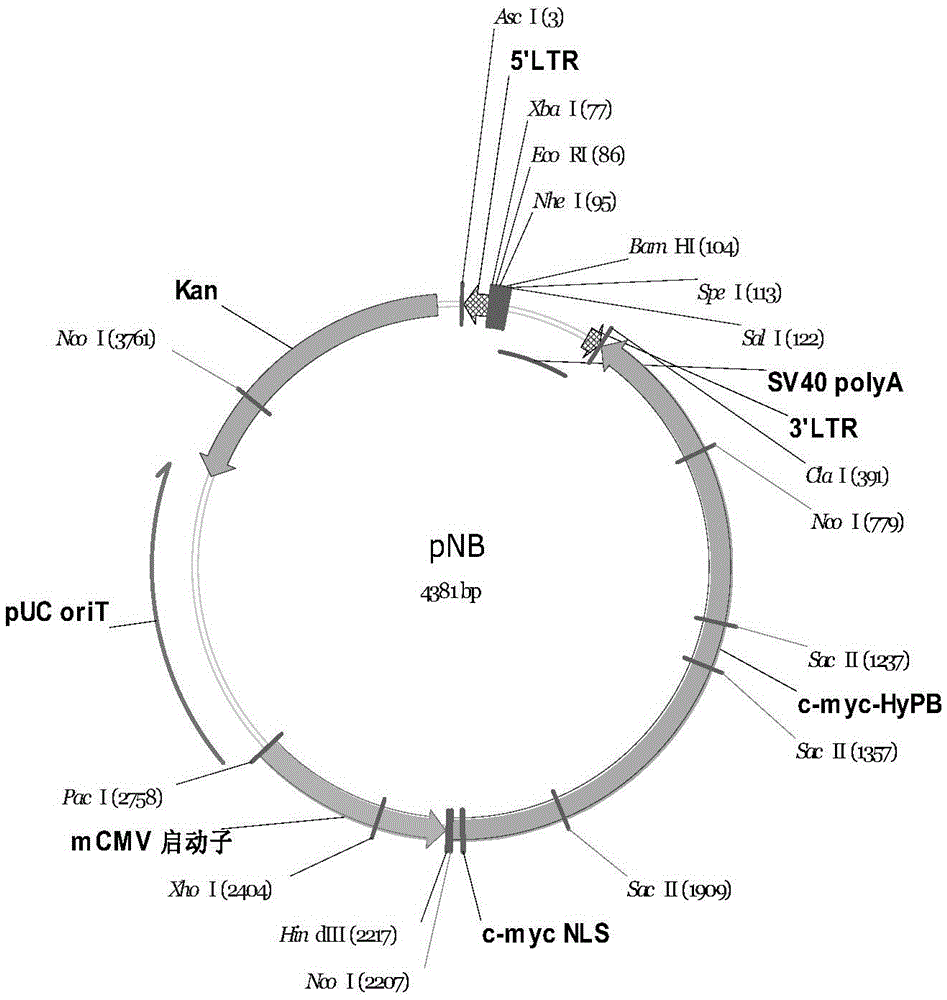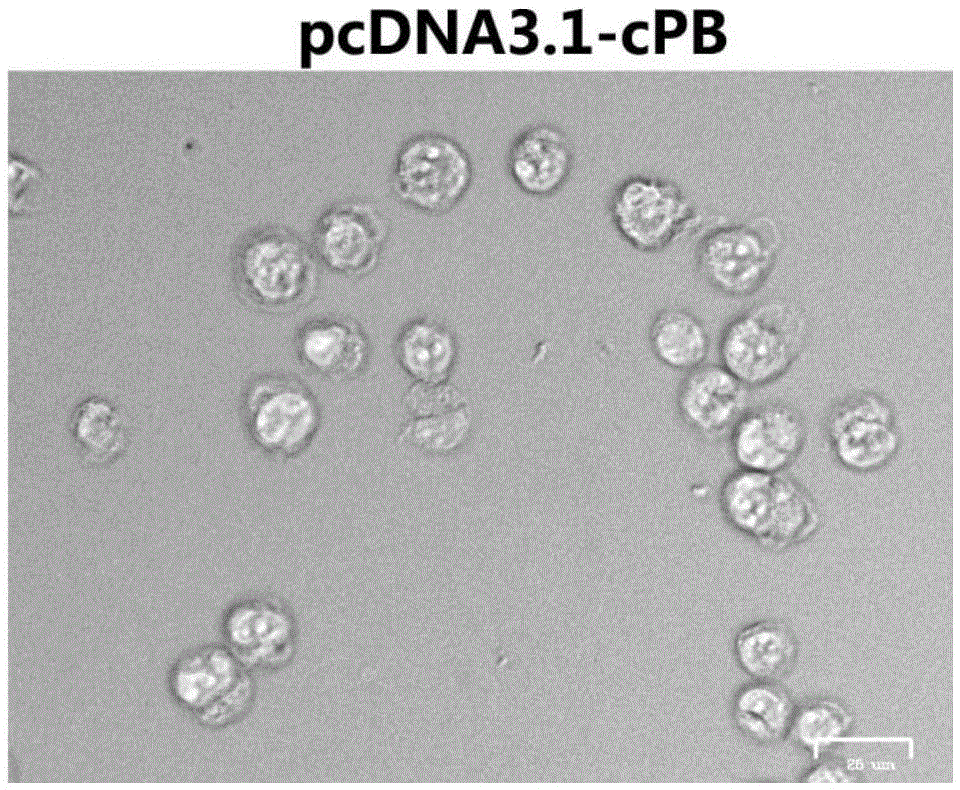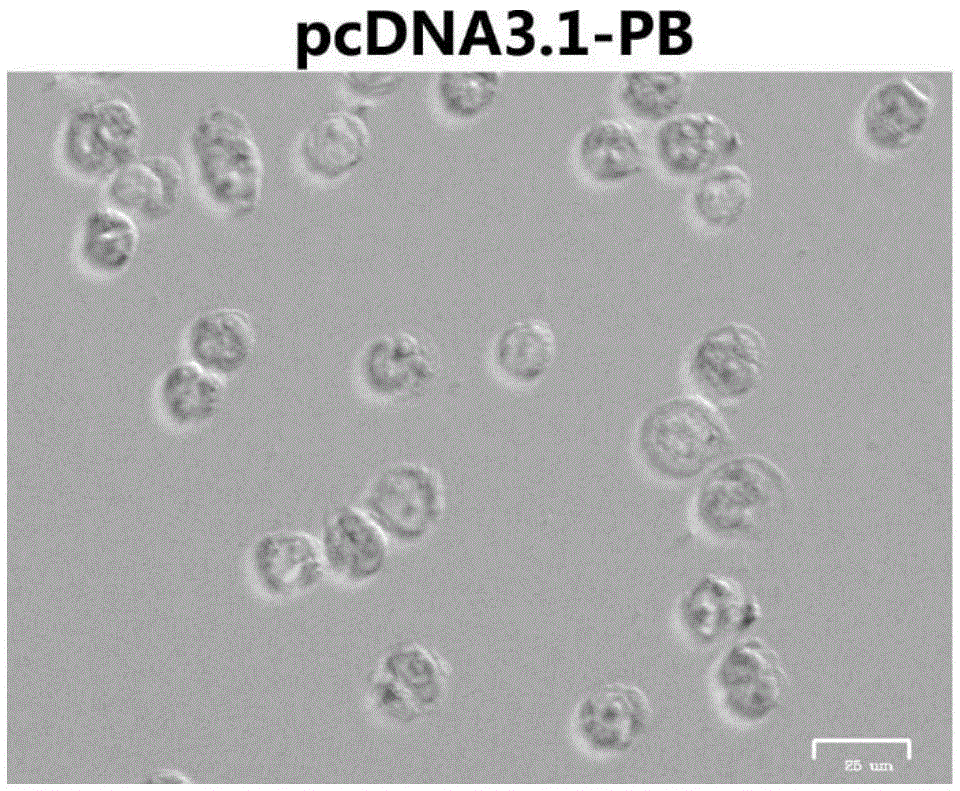Transposase for efficiently mediating exogenous gene integration, and use thereof
A transposase and human-derived technology, applied in the field of molecular biology, can solve problems such as limited loading capacity, low integration efficiency, and complicated preparation process of recombinant virus particles
- Summary
- Abstract
- Description
- Claims
- Application Information
AI Technical Summary
Problems solved by technology
Method used
Image
Examples
Embodiment 1
[0120] Embodiment 1: Construction of pNB vector
[0121] According to the sequence of PiggyBac transposon 5' terminal repeat (SEQ ID NO: 1), polyclonal insertion site (SEQ ID NO: 2), polyA tailing signal sequence (SEQ ID NO: 3), PiggyBac transposon 3' terminal repeat (SEQ ID NO :4), PiggyBac transposase coding sequence (SEQIDNO:5) containing c-myc nuclear localization signal, CMV promoter sequence (SEQIDNO:6), spliced into a long sequence (SEQIDNO:7), wherein contains c-myc The PiggyBac transposase coding sequence of the nuclear localization signal and the reverse complement of the CMV promoter sequence sequence (reverse complement here means that the expression frame of the exogenous gene is in the opposite direction to the expression frame of the PB gene, so the PiggyBac transposase coding sequence is displayed. Sequence, the reverse complementary sequence of the CMV promoter sequence), commissioned by Shanghai Jereh Biotechnology Co., Ltd. to synthesize, and added AscI ...
Embodiment 2
[0122] Embodiment 2: Construction of the pNB vector containing exogenous gene expression cassette
[0123] 1. According to the sequence of the EF1α promoter, entrust Shanghai Jereh Biotechnology Co., Ltd. to synthesize it, add XbaI and EcoRI restriction sites at both ends, load the pNB vector prepared in the previous example 1, and name it pNB328 vector.
[0124] The EF1α promoter sequence is shown in SEQ ID NO:8.
[0125] 2. According to the coding sequence of EGFP, entrust Shanghai Jereh Biotechnology Co., Ltd. to synthesize it, and add EcoRI and SalI restriction sites at both ends, load it into pNB328 vector, and name it pNB328-EGFP vector.
[0126] The EGFP coding sequence is shown in SEQ ID NO:9.
[0127] 3. According to the Luc luciferase coding sequence, entrust Shanghai Jereh Biotechnology Co., Ltd. to synthesize it, and add EcoRI and SalI restriction sites at both ends, load it into pNB328 vector, and name it pNB328-Luc vector.
[0128] The coding sequence of Luc ...
Embodiment 3
[0131] Example 3: Construction of PB vector and analysis of nuclear localization
[0132] The inventors used the method of immunofluorescence hybridization to detect the change of protein subcellular localization before and after artificially increasing the nuclear localization signal of PB transposase. Since there is no PB transposase antibody on the market, the inventors fused a His tag in front of PB, and used the His tag antibody to detect the subcellular localization of the His-PB fusion protein.
[0133] Specific steps are as follows:
[0134] 1. Construction of pcDNA3.1-cPB vector
[0135] According to the human c-myc nuclear localization signal coding sequence, 6×His tag coding sequence, and PB transposase coding sequence, a coding sequence of myc-his-PB fusion protein (SEQ ID NO: 17) was spliced into a piece of myc-his-PB fusion protein coding sequence, commissioned by Shanghai Jereh Biotechnology Co., Ltd. Co., Ltd. synthesized the entire sequence, and added Hi...
PUM
 Login to View More
Login to View More Abstract
Description
Claims
Application Information
 Login to View More
Login to View More - R&D
- Intellectual Property
- Life Sciences
- Materials
- Tech Scout
- Unparalleled Data Quality
- Higher Quality Content
- 60% Fewer Hallucinations
Browse by: Latest US Patents, China's latest patents, Technical Efficacy Thesaurus, Application Domain, Technology Topic, Popular Technical Reports.
© 2025 PatSnap. All rights reserved.Legal|Privacy policy|Modern Slavery Act Transparency Statement|Sitemap|About US| Contact US: help@patsnap.com



